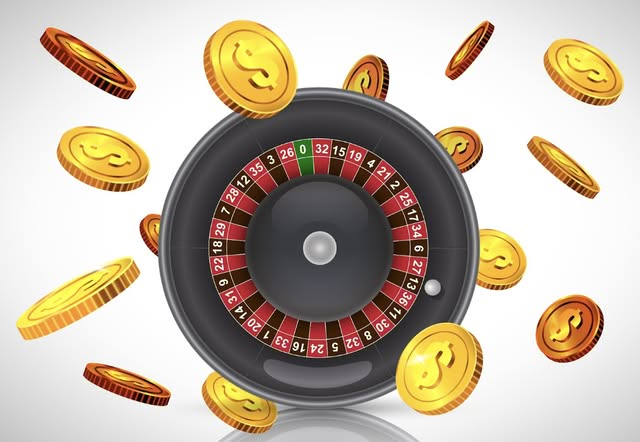Top 10 Ridiculous Superstitions Gamblers Still Believe
- Category: Pics |
- 13 Aug, 2025 |
- Views: 875 |

Superstitions survive because the mind searches for patterns in noise. A near miss feels meaningful. A short streak feels like a signal. In real casinos and in certified online games the outcomes come from physics or from audited random number generators. The house edge does not react to charms, colors, or rituals.
Modern lobbies put data up front, yet the old beliefs travel with us, and on Lucky Dreams you can still spot players tapping screens, whispering phrases, or timing spins to pull in good fortune. None of this changes probability. It only changes mood. Here are ten favorites and the plain truth behind them.
1. Hot and cold machines
Players claim a machine heats up after wins or cools down after losses. Slot outcomes are independent. The result is set when you press spin. Payback percentage is a long run average across vast cycles. A short streak is variance. Yesterday’s pattern does not move today’s chance.
2. The lucky seat or cabinet
Some swear by a chair, a unit number, or a corner of the floor. Location does not alter odds. What matters is the game version, the pay table, and the denomination. If two cabinets share settings, their expected return is the same. Comfort is fine. It is not an edge.
3. Blowing on dice
Looks cool in a movie. Does nothing on a table. Dice are balanced. Dealers want the throw to hit the back wall. Breath adds no torque. It is bad hygiene too. Many rooms will ask you to stop.
4. Stopping slot reels at the perfect moment
Players hammer the stop button to catch a win at the exact frame. In modern machines the RNG locks the outcome the instant the spin starts. The stop only ends the animation sooner. You can speed up the session. You cannot bend payback or tilt probability.
5. Wearing red or carrying a charm
Red shirts, rabbit’s feet, and coins in a shoe show up in many cultures. They can lift confidence and create a fun ritual. They have no statistical power. If the wardrobe shift seems to help, it is variance or selective memory. Mood can steady nerves. It cannot change math.
6. Never count money at the table
Some fear a jinx if they stack chips during play. Counting does not alter probabilities. It can distract others, which is why a few rooms prefer that players color up or settle between hands. Etiquette can shape comfort and pace. It does not change expected value.
7. Do not cross legs or arms
Guides warn that a closed posture blocks fortune. There is no mechanism for that. Crossing legs may affect comfort and attention, which can nudge decisions in skill games. Results still come from cards, dice, wheels, or RNGs. Open posture can help breathing. It cannot fix a bad draw.
8. Lucky and unlucky numbers decide outcomes
Thirteen, four, or a birthday number often feels special. Roulette and craps ignore cultural meaning. A spin or a roll has fixed probabilities. A European wheel uses a single zero. An American wheel adds double zero, which raises the edge. Numerology does not move those facts.
9. Any door, any time
Some players use a side door, touch a statue, or wait for a lucky hour. It feels right. It does not change the odds. The game does not track your path or the time. Payouts are not scheduled by the moon or by shift changes. Wins cluster because randomness clusters.
10. Walking away primes the jackpot for the next person
A painful myth says a dry session loads the machine for whoever sits down next. You did not charge a battery. The next player hits only because every spin has the same independent chance. Hindsight bias makes that hit feel connected to your exit. It was not.
Why our brain buys these stories
The brain loves cause and effect. It hates silence. Near misses look like progress even when the true chance stays flat. Losses sting more than equal wins please, so we grab for control.
Rituals soothe. Simple rules feel safe. We copy what others do.
Here is the quiet part most people skip. Every game has a few levers. Edge, swing, and pace. The edge is the long trend. Swing is how bumpy the road feels on the way to that trend. Pace is how many choices you take each hour. More choices pull you toward the average sooner. That average favors the house. Belief does not move the curve. Stories do not move it either.
How to keep superstition in its place
Treat play as entertainment with a price tag. Set a budget and a time box before you start. Choose games you enjoy and stakes that fit that plan. Take short breaks to reset attention. Keep a simple log of sessions to counter selective memory. If a ritual keeps you calm, keep it, yet let numbers run the decisions. Confidence should come from bankroll rules, pacing, and clear exit points.
Superstitions can be funny and even charming. They do not move the math. When you know the difference, you enjoy the suspense without chasing ghosts and you walk away on your terms rather than on a myth’s schedule.

